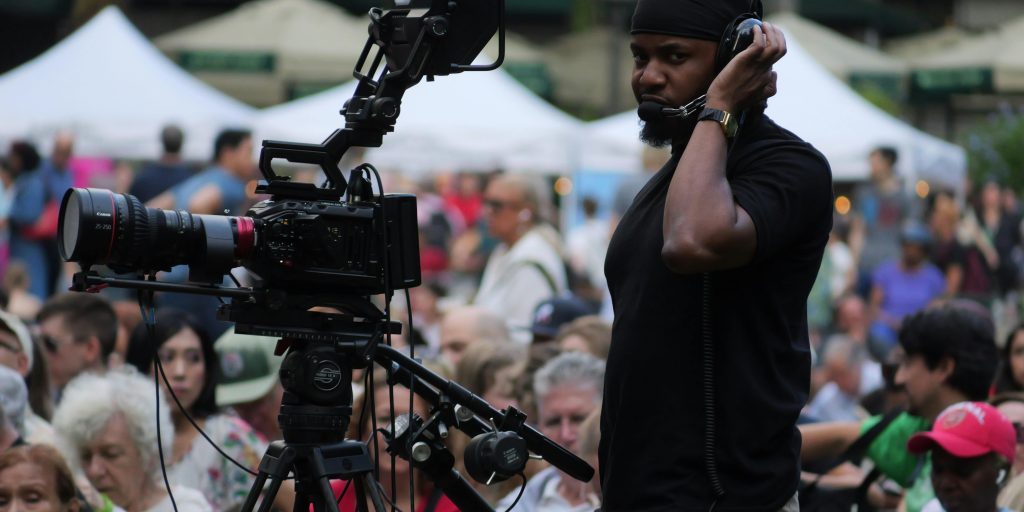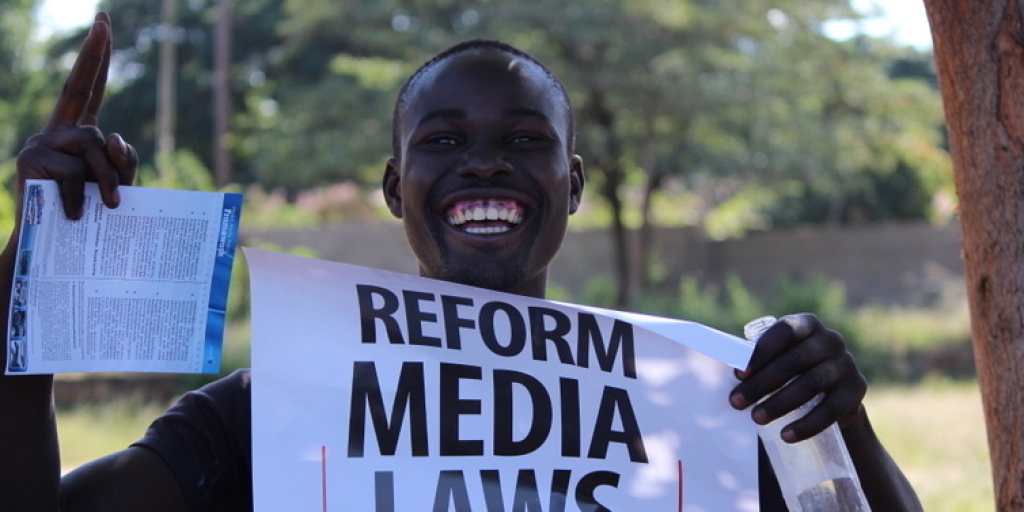A ‘Group of Friends’ on Safety of Journalists at the AU?
PICTURE: kxshmedia/Pexels
UNESCO
One of the significant achievements in the implementation of the United Nations’ Plan of Action on the Safety of Journalists and the Issue of Impugnity was the formation of the first three ‘Groups of Friends on the Safety of Journalists‘ in 2016 by Member States at the UN in New York, at the Human Rights Council in Geneva and at UNESCO headquarters in Paris.
Since then, three other Groups of Friends (GoFs) have been formed in Vienna (for the Organization for Cooperation and Security in Europe), in Strasbourg (for the Council of Europe) and most recently in Washington DC (for the Organization of American States).
These Groups have been active in raising pertinent issues related to the safety of journalists in multilateral meetings, and have been key players in the adoption of UN Resolutions on the same subject both at the UN General Assembly and the Human Rights Council.
A number of African countries are members of these groups, particularly in New York, Geneva and Paris. These countries include Ghana, Botswana, Cape Verde, Kenya, Senegal, Morocco, Tunisia, and Nigeria
Within the context of the commemoration of the International Day to End Impunity for Crimes Against Journalists (IDEI), set to be hosted in Addis Ababa by the African Union (AU) this year, it would be a significant opportunity to build on the experience of Member States that are already members elsewhere to launch a GoF on Safety of Journalists at the AU.
Groups of Friends are loose/informal networks/coalitions of Member States brought together by a common desire to pursue particular goals and outcomes related to specific issues or outcomes. In other words, GoFs are multilateral mechanisms for mobilising and uniting interested parties to pursue a common cause
GoFs have been a common feature within the UN system since 1992 when the first Group was formed as a multilateral model for mediation and peacekeeping, particularly in the context of conflicts in various parts of the world.
Over the course of time, the model evolved to include a diversity of issues, ranging from criminal justice to climate change and inclusion to human trafficking, among others. GoFs engage differently – from organising events on the margins of sessions advocating for specific actions from Member States, to lobbying on given issues or UN Resolutions.
In the case of GoFs on Safety of Journalists, the common cause is to leverage multilateralism in advocating for better multilateral policies and actions for a safer environment for journalists and media workers.
These groups bring together States that commit to strengthening the UN Plan of Action and its implementation at a national level, as well as its promotion in all relevant UN-fora.
These groups serve to raise awareness within themselves and with other Member State delegations to co-operate in relation to debates, to share good practices, and to communicate developments and the availability of resources and technical assistance back to their capitals
GoFs on Safety of Journalists are therefore one of the various networks that epitomise the coalition-based approach in the implementation of the Plan of Action.
Related networks include the UN Focal Points Network for the Safety of Journalists, the Intergovernmental Task Force (IGO) on safety of journalists, the Journalism Safety Research Network, the Media Freedom Coalition and the International Coalition of Civil Society Organizations on Safety of Journalists.
Since GoFs are informal networks, they do not, as such, function in strictly formal structures. Various GoFs decide how they run their affairs, how their leadership is determined and what particular issues concern them most.
For example, the GoF on Safety of Journalists in Paris was founded under the chairmanship of Austria in 2016, and Austria still holds the chair. The main aim of this Group is to support UNESCO’s work in the field, especially with regard to the implementation of the Plan of Action as well as promote safety of journalists’ issues at UNESCO.
Countries that seek to join the group have to commit to these objectives.
The Group meets twice a year, and its agenda is proposed by the Chair and discussed with UNESCO. As part of the agenda, sometimes Member States approach the Chair to suggest presentation of some of their initiatives or propose to invite particular guests. The content of the meetings is very much aligned to UNESCO’s agenda, particularly in discussing upcoming safety of journalists’ decisions in the Executive Board and the International Programme for the Development of Communication (IPDC).
The Group also issues statements on the occasion of the World Press Freedom Day and the International Day to End Impugnity for Crimes Against Journalists. Its agenda and calendar is closely aligned with the UNESCO’s thematic and programmatic priorities.
With the establishment of this GoF at the Organization of American States in 2022, the AU remained the only major continental intergovernmental body without such a network. Yet the AU has a very rich framework in safeguarding the safety of journalists. These include the African Charter on Human and Peoples Rights, the Declaration of Principles on Freedom of Expression and Access to Information in Africa, the AU Special Rapporteur on Freedom of Expression and Access to Information and the 2020 ACHPR Resolution on the Safety of Journalists and Media Practitioners in Africa, offering all the necessary structures to support an active agenda and opportunities for alignment with the existence of a such a GoF.
In the 2021 IPI-KAS report, Press Freedom and Safety of Journalists in Africa, the Konrad Adenauer-Stiftung (KAS) and the International Press Institute (IPI) explore the effectiveness of GoFs in advancing issues of the safety of journalists within multilateral structures, and recommend ‘the establishment of such a GoF at the AU to bolster diplomatic advocacy for the safety of journalists’.
Although GoFs are Member States-driven initiatives, UNESCO has been supportive in facilitating the agendas of Groups in alignment with its mandate, and would be ready to support the establishment of one at the AU. So too some AU Member States which are already members of GoFs in Paris, Geneva and New York, which provide a core group of willing actors that could foster and incubate the formation.
Hosting of the 2024 International Day by the AU at its headquarters presents a strategic opportunity and framework to engage its relevant organs and structures towards the formation of the GoF. Addis Ababa [is] a strategic and symbolic platform [and] such an action could be one of the key outcomes of the commemoration of the 2024 IDEI.




